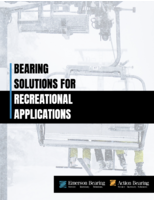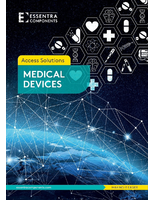Alcoa Celebrates 125 Years of Modern Aluminum
Share:
Miracle Metal Continues to Build on Its Sustainable Legacy
NEW YORK - This month marks a milestone in American history that's known to few but benefits everyone. Thanks to the birth of the modern aluminum smelting process 125 years ago by Charles Martin Hall, thousands of products can be made safer, lighter, more fuel efficient and more recyclable.
Hall was just 22 years old and a student at Oberlin College in Ohio when he discovered the way to create aluminum by separating it from bauxite ore through electrolysis. The aluminum pellets created from this discovery are called "Alcoa's crown jewels" because it led to the patent Hall received July 9, 1886, and later the founding of Alcoa.
In celebration of Hall's remarkable invention, Alcoa, the company launched by Hall and a group of inspired investors, is initiating a series of events and activities to recognize Hall's achievement and the influence of this miracle metal. This includes a donation of $10,000 to the college's Green EDGE Fund, which finances environmental projects on the Oberlin campus and nearby community.
Alcoa Vice President and Chief Sustainability Officer Kevin Anton will kick off the recognition at a keynote address today at Oberlin College, which is also commemorating the anniversary with special programs.
"Hall's process is of course the backbone of our company, but this singular 'cracking of the code' did much more than just build an American success story," said Anton. "In the 125 years since his discovery, the development of aluminum has been nothing short of ground-breaking - opening up entire markets and industries, from cookware to electrical conductors, to car frames, to space shuttles and iPods."
According to Anton, the innovation that occurred on Feb. 23, 1886, in Hall's 'woodshed' lab remains today at the core of Alcoa's DNA.
"We call aluminum the miracle metal not just for one reason - but for many," he said. "Its properties are simply amazing: lightweight and ideal for promoting fuel efficiency in autos; strong enough to withstand deep ocean drilling and space travel; non-corrosive, making it perfect for use on the façade of buildings; and, of course, it is infinitely recyclable. No other material has all of these properties."
Prior to Hall's invention, aluminum extraction methods were crude and costly. It was a metal used rarely and only by those who could afford it. Thus in the late 1800s, it was used sparingly and as an ornamental metal, like its placement in 1884 at the top of the Washington Monument.
After Hall's patented process, aluminum became more available and its attributes were recognized and sought after-in 1903 the Wright brothers recognized the lightweight properties of Alcoa aluminum were integral to their first flying machine. In the years that followed, from the industrial revolution to today, aluminum has been at the cornerstone of both the extraordinary and the everyday.
No other metal has aluminum's sustainability advantage. Nearly 75 percent of the aluminum ever produced is still in use today. When an aluminum can is recycled, it can be back on the shelf in 60 days. Alcoa saves 95 percent of the energy it takes to make a can from new metal, which lowers the carbon footprint of an aluminum can.
The demand for this miracle metal in industries ranging from transportation and consumer electronics, to packaging and building & construction has never been brighter. As Anton notes, "Aluminum's contributions to the advancement of society are limitless. And the ingenuity and out-of-the-box thinking and experimentation that were characteristic of Charles Martin Hall continue to drive our ambitions at Alcoa today."
More information about the remarkable history of aluminum can be found at www.alcoa.com.
About Alcoa
Alcoa (NYSE:AA) is the world's leading producer of primary and fabricated aluminum, as well as the world's largest miner of bauxite and refiner of alumina. In addition to inventing the modern-day aluminum industry, Alcoa innovation has been behind major milestones in the aerospace, automotive, packaging, building and construction, commercial transportation, consumer electronics and industrial markets over the past 120 years. Among the solutions Alcoa markets are flat-rolled products, hard alloy extrusions, and forgings, as well as Alcoa® wheels, fastening systems, precision and investment castings, and building systems in addition to its expertise in other light metals such as titanium and nickel-based super alloys. Sustainability is an integral part of Alcoa's operating practices and the product design and engineering it provides to customers. Alcoa has been a member of the Dow Jones Sustainability Index for nine consecutive years and approximately 75 percent of all of the aluminum ever produced since 1888 is still in active use today. Alcoa employs approximately 59,000 people in 31 countries across the world. More information can be found at www.alcoa.com.




